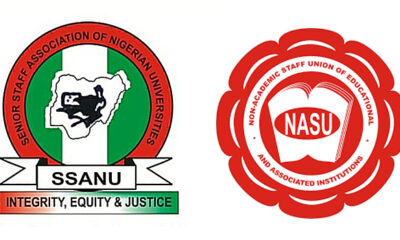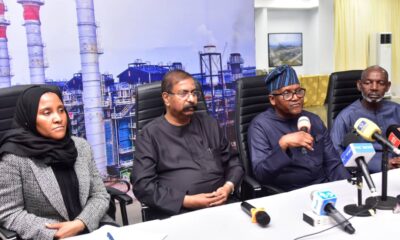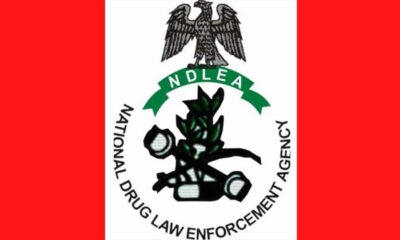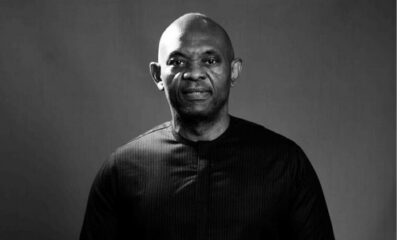* To undergo three years of “supervised release” after serving his complete jail term
Obinwanne Okeke, also known as Obi Invictus has been ordered to restitute about $10.7million which he fraudulently obtained from identified victims of his at least five years of wire fraud in the U.S and other places.
According to Premium Times, a judge of the Eastern District of Virginia, Rebecca Smith, while sentencing him to 10 years in jail on February 16, also ordered the forfeiture of his identified assets to the U.S government.
The assets include his “white gold emerald cut engagement ring with small accent diamonds.”
The other forfeited assets are two cars back home in Nigeria, and N280,555,010 translating into about $700,000 which the Nigerian government had seized from him.
The judge, Rebecca Smith, ordered Mr Okeke to restitute $10.7million as proceeds of his fraud to the U.S. government in addition to the jail term.
Mr Okeke, who had already spent 19 months in detention as of the time of his sentencing, was also ordered to undergo three years of “supervised release” after serving his complete jail term.
On completing his jail term, Mr Okeke will be presented before a duly-authorized immigration official of the Department of Homeland Security Bureau of Immigration and Customs Enforcement “for deportation review,” said the judge.
The office will determine whether to immediately deport him or make him undergo the three years “supervised release” in the U.S.
The fraud
U.S authorities said Mr Okeke and his co-conspirators, who remain at large, “through subterfuge and impersonation,“ engaged in a multi-year global business email and computer hacking scheme that caused a staggering $11 million in losses to his victims.”
Mr Okeke, 31, also known as Invictus Obi, had in June last year pleaded guilty to one count of wire fraud.
His guilty plea which helped him to have one of the two counts initially filed against him dropped conceded to making restitution and forfeiture of his seized assets.
Sentencing
PREMIUM TIMES on Thursday exclusively obtained the court’s Restitution Order’ and ‘Consent Order of Forfeiture’ which are part of the sentencing documents signed by the judge and the parties to the case.
Apart from the judge, others who signed the two documents are, the Acting United States Attorney in the Eastern District of Virginia, Raj Parekh, Mr Okeke, and his defense lawyer, John Iweanoge.
“Pursuant to 18 U.S.C § 3663A(a)(1), the defendant is ordered to pay restitution in the total amount of $10,679,166.54 jointly and severally with any other defendants who are ordered to pay restitution for the same losses,” the restitution order read in part.
Attached to the document is a list of three victims of Mr Okeke’s fraud.
They are Unatrac Holdings LLC in Washington DC, which was duped $5,429,166.54; Orient Insurance PJSC, duped $5million, and QBE European Operations which lost $250,000 to the fraudsters.
The court ordered that all the payments for the restitution which “shall be made to the Clerk of Court” “shall distribute the funds to Unatrac first and to the remaining victims on a pro-rata basis.”
The court waived interest on the amount to be restituted by the convict and ordered that “no delinquent or default penalties will be imposed except upon Order of the Court.”
Forfeiture order
In the consent forfeiture order, the judge gave a monetary judgment capturing the total of $10,679,166.54 to be restituted by Mr Okeke.
This implies that the U.S authorities will be able to execute the order as the court’s final judgment for the forfeiture of any assets in which Mr Okeke has interests to raise the money for restitution.
According to the court, the sum “shall constitute a monetary judgment against the defendant in favour of the United States,” and “shall be offset” after final forfeiture and liquidation of all of the assets seized from Mr Okeke.
Some of Mr Okeke’s assets already ordered in the document for forfeiture is “18kt white gold emerald cut engagement ring with small accent diamonds and containing GIA number 2287567161.”
“This ring was seized from the defendant at the time of his arrest,” the document explained.
The court also ordered the forfeiture of the U.S government, “Approximately 280,555,010Nigerian Naira (approximately $700,000 U.S.) seized from the defendant by the Nigerian authorities in light of his arrest on the charges in this case.
“Proceeds from the sale of the defendant’s 2018 Toyota Camry and 2017 Toyota Hilux.”
It added, “The defendant agrees to sell these two vehicles, located in Nigeria, and send the proceeds to the U.S. Marshals Service.
“The defendant shall remit these proceeds to the U.S. Marshals Service within six months of the date of this order unless the defendant obtains an extension by written agreement with the government.
“The United States shall seize all forfeited property and shall take full and exclusive custody and control of same.”
U.S. assets also forfeited
The document also gave an indication without giving details that Mr Okeke may have assets in the U.S. that could be taken over by the government authorities in executing the monetary judgment of the court.
“With respect to the monetary judgment described in paragraph (1)(a) above, the United States may collect this monetary judgment by all lawfully available means, including but not limited to forfeiture of direct proceeds and substitute assets.
“Insofar as the United States seeks forfeiture of substitute assets, the defendant agrees and the court finds that one or more of the criteria set forth in 21 U.S.C. §853(p)(1) are present here and the United States may therefore seek forfeiture of substitute assets pursuant to § 853(p).”
But the court directed that in executing the forfeiture order on such assets in the U.S, the authorities “shall to the extent practicable, provide direct written notice to any persons known to have alleged an interest in the seized property, and shall publish notice of this order in accordance with Federal Rule of Criminal Procedure 32.2(b)(6).”
The court added that any person, other than Mr Okeke, asserting any legal interest in the property “may, within 30 days of the publication of the notice or the receipt of the notice, whichever is earlier, petition the court for a hearing to adjudicate the validity of their alleged interest in the property.”
It also ordered: “Following the Court’s disposition of all timely petitions filed, a final order of forfeiture shall be entered. If no third party files a timely petition, this order shall become the final order of forfeiture, as provided by Federal Rule of Criminal Procedure 32.2(c)(2), and the
The United States shall have clear title to the property, and shall dispose of the property in accordance with the law.”
Profile
Mr Okeke is the founder of Invictus Group, which he claimed to have a business interest in oil and gas, agriculture, and real estate, among others.
He is said to have a degree in International Studies and Forensic Criminology and Masters of International Relations and Counter-Terrorism Studies from Monash University in Australia
Mr Okeke, a businessman with international fame, was featured on the Forbes Africa Magazine in June 2016 cover.
Arrest
He was arrested on August 6, 2019, on a criminal complaint for computer and wire fraud to defraud Unatrac Holding Limited which is headquartered in United Arab Emirates (UAE).
Operatives of the Federal Bureau of Investigations (FBI) nabbed him at Dulles International Airport, Virginia, as he prepared to depart the U.S after a visit to witness the birth of his 19-month-old daughter born on July 15, 2019.
Charged
On September 9, 2019, he was charged with two counts of conspiracy to commit wire fraud and conspiracy to commit computer fraud.
Mr Okeke, who initially denied the charges, later entered into a plea bargain agreement with the U.S authorities and pleaded guilty to Count 1 on June 18, 2020.
The guilty plea helped Mr Okeke to secure the withdrawal of the second charge that carries a lesser sentence and fines.

 BIG STORY23 hours ago
BIG STORY23 hours ago
 BIG STORY22 hours ago
BIG STORY22 hours ago
 BIG STORY4 days ago
BIG STORY4 days ago
 BIG STORY4 days ago
BIG STORY4 days ago
 BIG STORY4 days ago
BIG STORY4 days ago
 BIG STORY3 days ago
BIG STORY3 days ago
 BIG STORY3 days ago
BIG STORY3 days ago
 BIG STORY3 days ago
BIG STORY3 days ago























